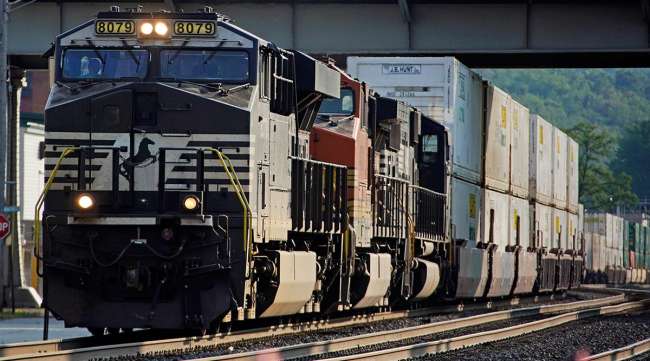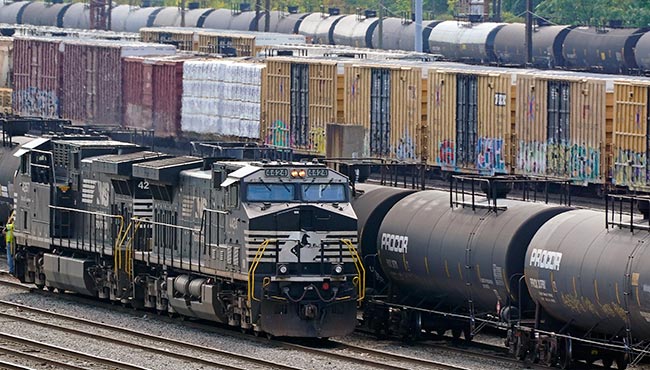Rail Union That Rejected Deal Signs New Tentative Agreement

[Stay on top of transportation news: Get TTNews in your inbox.]
OMAHA, Neb. — A union that rejected its deal with the nation’s freight railroads earlier this month now has a new tentative agreement, but officials cautioned that the contract dispute won’t be fully settled until all 12 rail unions approve their agreements this fall.
The five-year deal announced Sept. 27 includes a 24% pay raise and $5,000 in bonuses that were in the first deal, along with a couple additional benefits including a cap on health insurance expenses and a promise that each railroad will negotiate individually over expense reimbursement.
Andrew W. Sandberg, assistant president of the International Association of Machinists and Aerospace Workers union’s District 19 unit, said he hopes the enhancements will be enough for union members to ratify the agreement. But a nationwide railroad strike is still possible if his union, or any of the 11 other railroad unions, reject their agreements with the railroads that cover 115,000 workers.
“I certainly do think that there’s a possibility” of a strike, Sandberg said.

Norfolk Southern locomotives work in the in the Conway Terminal in Conway, Pa. (GeneJ. Puskar/Associated Press)
If one of the unions does reject their deal, a strike wouldn’t immediately happen because the unions have agreed to delay any walkouts until Dec. 9. So if a deal is voted down, both sides would likely return to the bargaining table. In addition, Congress would likely intervene to prevent a strike that would disrupt the flow of goods across all sectors of the economy.
President Joe Biden declared earlier this month that a railroad strike that would be devastating to the economy had been averted after members of his administration helped broker last-minute deals for the two largest railroad unions that represent engineers and conductors.
One rail union — the International Brotherhood of Electrical Workers — is scheduled to vote on its deal later this week and two other unions have already approved their deals. But voting by all the unions won’t be completed until mid-November.
Want more news? Listen to today's daily briefing above or go here for more info
Most of the terms of all these deals closely follows the recommendations that a Biden-appointed special board of arbitrators made this summer. That includes the raises, annual $1,000 bonuses and one additional paid leave day, but workers also have to take on a larger share of their health insurance costs.
The unions that represent conductors and engineers — the Brotherhood of Locomotive Engineers and Trainmen and the Transportation Division of the International Association of Sheet Metal, Air, Rail and Transportation Workers unions — also negotiated to get three unpaid leave days for medical appointments and a promise that workers won’t be penalized if they are hospitalized. The railroads also agreed to negotiate further with those unions about improving the scheduling of regular days off for workers.
Sandberg said members of the Machinists union tend to work more regular schedules than engineers and conductors who say they are on call 24/7 and have to comply with strict attendance policies, so those unpaid leave days weren’t as attractive to them. Plus the SMART and BLET unions agreed to tight restrictions on those days that say they must be approved 30 days ahead of time and taken only on Tuesdays, Wednesdays or Thursdays.
The railroads also promised the Machinists that they won’t force workers to share hotel rooms when they’re on the road for work. And the railroads — which include Norfolk Southern, Union Pacific, BNSF, CSX and Kansas City Southern — said they would do a joint study with the union about forced overtime and the rules on meal breaks during overtime.




